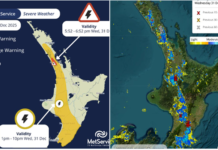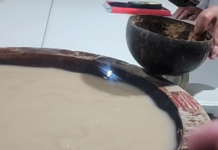COMMENTARY: What is the future of Lulutai airlines?
After Lulutai airlines was given the sole license to fly in Tonga, critics said the government should have left the airlines in the hands of the private sector.

They said the government should assist the private sector in whatever it could do to make it financially viable.
Former Prime Minister Pōhiva Tuionetoa said the government’s interest in the airlines business was to fix it and make sure it was stable before giving it back to the private sector.
However, the government never did this, despite repeated offers from two of the country’s former airline operators to step in.
Prime Minister Hu’akavameiliku echoed the same policy as Hon. Tu’i’onetoa – to keep the airlines until it is financially viable.
The question is whether an airline in Tonga can ever be financially viable. The previous operator, Real Tonga struggled to remain financially viable and incurred $500,000 after a bird strike on the airlines Saab340. Previous airlines have either failed financially or been the victims of political meddling.
Current government policies may be wishful thinking – and that can be dangerous for an airline.
Now, when Lulutai is in trouble financially, it has been reported that it has incurred $18 million in operating costs and there has been no mention of the government expects to recoup its investment.
The government appears to have guaranteed a loan of $13 million for Lulutai’s maintenance. This means if Lulutai dies tomorrow the government has to repay this loan from taxpayers’ money.
The Australian government has been paying Fiji Airways to run a passenger service seven times a week between Tongatapu and Vava’u. Tonga and Australia signed a financial agreement to help fund the service until at least June 30.
It is presumed that subsidy continues.
Announcing the rescue package in February, Prime Minister Hu’akavameiliku said additional expenses incurred by the compensation deal would be covered by Australia.
The Australian High Commissioner in Tonga, Rachael Moore, said Australia was donating Aus$500,000 to the rescue package.
“Lulutai will continue to sell tickets. If there is a shortfall in the cost of any of those segments Australia will meet that shortfall to ensure that connectivity domestically for Tonga,” she said.
Australia has also been training pilots and engineers and providing ground support equipment and aviation weather infrastructure.
Australia clearly has a strategic interest in keeping an airline flying in Tonga because it helps generate much needed tourism revenue that helps make the kingdom more viable in the long run, but what about the long term? Will Australia really be prepared to keep subsidising Lulutai forever?
Would it be prepared to see Lulutai become another financial wreck like Royal Tonga, which collapsed owing millions at the beginning of the century?
The answer may lie in a statement buried in the February announcement of the Australian rescue package, which said that Australia would provide technical advice to Lulutai to develop a long-term business plan.
What has happened to that business plan? Does it exist? And if it does, when will it be released?
How could such a plan protect Tonga’s air services and guarantee that the government will be able to meet its multi-million pa’anga financial obligations and recoup its investment? Did the Australian and Tongan governments involve commercial operators in their discussions?
Asked in February whether the government had considered selling Lulutai to a private company, the Prime Minister said that was part of the process to resolve the Lulutai crisis.
The question would be whether the government would let one of the previous operators back in the air or look for an overseas operator to step in, as happened when the New Zealand-based Chathams Pacific ran the domestic service.
Tongans who depend on a reliable airline service to travel and keep their businesses afloat deserve answers to these questions.







